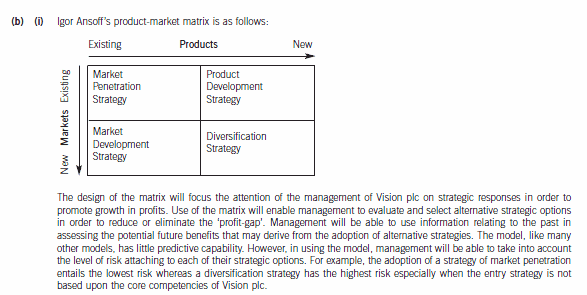本篇文章为你详细解答!ACCA一年可以报考多少次
发布时间:2020-05-01
很多同学在看到ACCA这15门科目就恐惧了,觉得一时半会考不下来,其实比起国内的注册会计师ACCA的考试周期甚至要略短些,大约需要2-3年。为什么?因为ACCA有着灵活的报考政策,每年都会设置4个考试季,而每个考季又可报考多门。那么,ACCA一年可以报考多少次?51题库考试学习网来为大家详细解答。
根据ACCA官方政策来看,ACCA考试共有两种机考形式,分别是随时机考和分季机考。目前,ACCA很多科目(应用知识课程、应用技能课程)的考试都已开启机考通道。除前四科随机机考之外,ACCA其他科目一年有4个考季,即一年内有4次机会可以参加考试,ACCA依然沿用在一年内最多可以报考的科目仍然为8门 (ps:不包括补考),每个考季报考不超过4门的政策。
不过,话说回来,两种机考有类似的地方,同时亦有所区别。比如,如何预定考位、何时何地参加考试,以及考试的形式,都有所不同。随时机考考生可在任意时间进行约考,而分季机考则需要在ACCA的考试季(3月、6月、9月、12月)的时候进行考试,并且还需要在规定的时间内注册、报名考试。
ACCA官方规定单一考季最多只能报考四科,而每年则只能报考八门,这样算下来,只要我们做好充分的准备,就能最快的拿下ACCA,很可能不到两年的时间就能拿下ACCA全科了。
ACCA总共有15门考试科目,其中13门是必考。在这些科目当中,又可以按照难易程度分为三个不同的阶段。那么,在这些课程当中,有没有报考顺序的要求呢?可以随便选择吗?今天就应广大学子的要求,来给大家一一解答这类问题。
首先我们来说说ACCA规定的大的方向的考试顺序是怎么样的。ACCA考试必须按照模块顺序来进行,即知识模块-技能模块-核心模块-选修模块。必须按照这个顺序来报考,但是各个模块内部的科目是可以打乱顺序考的。当然,这15个科目的考试顺序也是有规定的。15科目分为四个大模块:知识模块(AB-FA)、技能模块(LW-FM)、核心模块(SBL&SBR)、选修模块考试必须按照模块顺序来进行,即知识模块-技能模块-核心模块-选修模块。必须按照这个顺序来报考,但是各个模块内部的科目是可以打乱顺序考的。
希望本篇文章能够帮助到大家,如果大家还遇到其他不能解决的问题,可以反馈给51题库考试学习网,我们会尽快帮您解决。
下面小编为大家准备了 ACCA考试 的相关考题,供大家学习参考。
5 An enterprise has made a material change to an accounting policy in preparing its current financial statements.
Which of the following disclosures are required by IAS 8 Accounting policies, changes in accounting estimates
and errors in these financial statements?
1 The reasons for the change.
2 The amount of the consequent adjustment in the current period and in comparative information for prior periods.
3 An estimate of the effect of the change on future periods, where possible.
A 1 and 2 only
B 1 and 3 only
C 2 and 3 only
D All three items
(b) (i) Explain how the use of Ansoff’s product-market matrix might assist the management of Vision plc to
reduce the profit-gap that is forecast to exist at 30 November 2009. (3 marks)

(b) Explanations of the various matters. (11 marks)
(b) Related matters
(i) National insurance contributions in 2007/08
The profit for the period ending 31 March 2008 is expected to be £1,200 (£400 x 3).
No class 2 contributions will be due as the profit is less than the small earnings exception limit of £4,465.
No class 4 contributions will be due as the profit is less than the lower profits limit of £5,035.
Tutorial note
Adam will have paid class 1 contributions in respect of his earnings from Rheims Ltd, thus preserving his entitlement
to state benefits and pension, and therefore there is no disadvantage in claiming the small earnings exemption from
class 2 contributions.
(ii) Purchase and renovation of the theatre
The theatre is a capital purchase that does not qualify for capital allowances as it is a building but not an industrial
building. Accordingly, the cost of purchasing the theatre will not give rise to a tax deduction for the purpose of computing
AS’s taxable trading income.
The tax treatment of the renovation costs may be summarised as follows:
– The costs will be disallowed if the renovations are necessary before the theatre can be used for business purposes.
This is because they will be regarded as further capital costs of acquiring appropriate premises.
– Some of the costs may be allowable if the condition of the theatre is such that it can be used in its present state
and the renovations are more in the nature of cosmetic improvements.
(iii) VAT position
The grant of a right to occupy the theatre in exchange for rent is an exempt supply. Accordingly, as all of AS’s activities
will be regarded as one for VAT purposes, AS will become partially exempt once he begins to rent out the theatre.
AS will be able to recover the input tax that is directly attributable to his standard rated supplies, i.e. those in connection
with the supply of children’s parties. He will also be able to recover a proportion of the input tax on his overheads; the
proportion being that of his total supplies that are standard rated.
The remainder of his input tax will only be recoverable if it is no more than £625 per month on average and no more
than 50% of his total input tax.
If AS were to opt to tax the theatre, the right to occupy the theatre in exchange for rent would then be a standard rated
supply. AS could then recover all of his input tax, regardless of the amount attributable to the rent, but would have to
charge VAT on the rent and on any future sale of the building.
The decision as to whether or not to opt to tax the theatre will depend on:
– the amount of input tax at stake; and
– whether or not those who rent the theatre are in a position to recover any VAT charged.
声明:本文内容由互联网用户自发贡献自行上传,本网站不拥有所有权,未作人工编辑处理,也不承担相关法律责任。如果您发现有涉嫌版权的内容,欢迎发送邮件至:contact@51tk.com 进行举报,并提供相关证据,工作人员会在5个工作日内联系你,一经查实,本站将立刻删除涉嫌侵权内容。
- 2020-05-15
- 2019-07-19
- 2020-02-14
- 2020-01-09
- 2020-01-09
- 2020-03-21
- 2020-05-14
- 2020-05-01
- 2020-04-23
- 2020-03-20
- 2020-05-07
- 2020-04-16
- 2020-04-29
- 2020-03-21
- 2020-01-09
- 2020-05-09
- 2019-07-19
- 2020-04-11
- 2019-12-27
- 2020-02-20
- 2020-01-09
- 2020-05-10
- 2020-01-30
- 2020-01-09
- 2020-01-09
- 2020-02-01
- 2020-05-16
- 2020-01-09
- 2020-01-09
- 2020-01-09